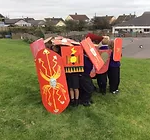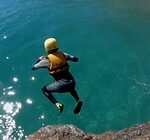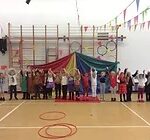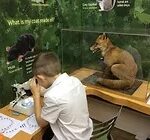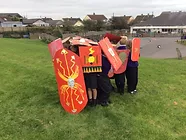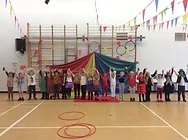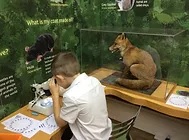Curriculum Overview
Pencoys Curriculum: Intent, Implementation and Impact statement
Being Your Best: Growing Together
“Education is the most powerful weapon which you can use to change the world”
Nelson Mandela
Curriculum Aims:
- Our aims are broad and focussed on learning to learn as well as specific knowledge and skills.
- We want our learners to be able to read, write, be numerate and knowledgeable, but also how to gain knowledge for themselves from the world around them.
- We want our pupils to have confidence and independence as learners to think for themselves
- We want our pupils to want our pupils to have developed employability skills such as emotional literacy, social communication skills, thinking and problem-solving capacity
- We want our learners to have a knowledge of the world around them and a sense of self and place so they become engaged citizens, with life choices available to them
- We want our learners to value each other and act in a responsible way.
Curriculum Drivers:
Environments |
The school context drives the curriculum design it therefore addresses cultural poverty, bias and ‘single story’ thinking. It is broad and balanced and designed with humanities at the core, providing pupils the knowledge and understanding about environments including: of their locality, their nation and their world in the past, present and future. Children are taught that much of the world’s distribution of natural resources is unequal and its impacts on people both locally and worldwide. Children are taught to have respect for others and the environment. Our curriculum enables children to think about their futures and the legacy they wish to leave behind, by encouraging them to take on responsibility and impact positively on their community (locally and globally). |
Community |
The community of Pencoys lies at the heart of our curriculum. Children develop a sense place, purpose and identity, understanding they are an important part of their local and global community. Through careful consideration, the curriculum offers a chance to learn about their heritage, develop a sense of belonging and understand how their local community is interconnected with the wider world. We enable pupils to understand the importance of collaboration and provide opportunities for pupils and families to support others (locally, nationally and globally), strengthening our community as we grow together.
|
Communication |
Our curriculum prioritises the teaching of reading and enabling pupils to be effective communicators both orally and in writing for different purposes and audiences. Reading is high priority within the school, not only developing the core phonic, decoding and comprehension skills but also developing a true love of reading. Throughout our curriculum, we consciously place a high importance on the teaching of speaking, reading and writing, which is developed across all subject areas. We have planned a coherent curriculum that consciously develops a rich vocabulary so our pupils can demonstrate their learning, express themselves and leave as effective communicators. |
Resilience |
For our pupils to be successful in life they must be resilient. They must have the ability to bounce back after challenges. Throughout our culture of our school and our teaching and learning we provide opportunities for children to experience challenges and successes. We strongly believe that strong relationships are the foundation of children’s resilience; teachers knowledge of how pupils learn means they can balance challenge and support. Children’s motivation is then driven more by intrinsic than extrinsic factors. |
Curiosity |
Teaching and learning within each subject discipline is based on an enquiry approach. Children have the opportunity to build knowledge and skills over a unit of work, enabling them to answer an overarching question at the end of the unit. Learning is designed to encourage pupils to ask questions and embed a thirst for learning. Children develop the skills they need to be critical thinkers and lifelong- learners. |
Creativity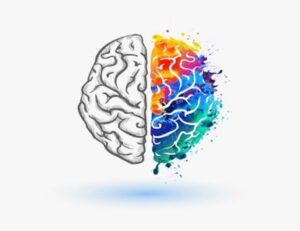 |
The school’s locality has a rich Arts heritage and arts communities which drives the curriculum. Creativity is a human endowment that provides ultimate freedom for our pupils allowing them to demonstrate, consolidate, embed and express their learning through a variety of mediums. The curriculum enables pupils to develop their problem solving and critical thinking skills to be creators rather than consumers of their knowledge. Creation within the classroom means knowing more stuff, having more insights and at some point( either in the lesson or in the future) being able to do something on their own terms. |
INTENT
The school context and values drive the curriculum design and as such it therefore address cultural poverty, bias and ‘single story’ thinking. It is broad, balanced and designed with humanities at its core providing pupils the knowledge and understanding about environments including: of their locality, their nation and their world in the past, present and future.
Our curriculum framework meets the requirements of the National Curriculum, providing pupils with the requisite skills and knowledge, in all subjects, to be successful, independent, resilient learners, in readiness for their next stage in education. The content and challenge of our units of learning inspire childrens’ curiosity, nurtures a passion for learning and prepare them for life as a global citizen, in which they can communicate effectively, in a fast-changing and interdependent world. It provides opportunities to explore complex and controversial issues such as equality which they may encounter through the media and their own experiences. It facilitates pupils’ problem solving and critical thinking skills to be creators rather than consumers of their knowledge. The curriculum enables pupils to develop the skills as agents of change to see how communities can work together and create a better future.
IMPLEMENTATION
Pedagogy
Our curriculum is broad and balanced and we have considered the knowledge skills and attitudes that are required to achieve academic excellence in each subject. This ensures that pupils in each phase of receive a rigorous, coherent and intelligently sequenced curriculum which builds on what has come before. The curriculum, at Pencoys, is grounded in the strongest available evidence about how children learn and retain knowledge, in the long term: Rosenshine’s Principles of Instruction. The Principles include: Retrieval Practice, Explicit teaching, Modelling and Scaffolding, Questionning and Deliberate Practice. We have identified the key learning to be acquired within a lesson, half-term, year and phase. We have ensured that pupils are encountering ‘fewer things; in greater depth.’ Our teachers also plan for and understand that pupils will ‘remember what they pay attention to’ and ensure that the independent practice facilitates this. Our marking and feedback policy states that the best practice is when pupils receive immediate, actionable feedback, in order to make changes , rather than practice that embeds mistakes. Teachers also plan for and address misconceptions.
We develop life- long learners by promoting our Characteristics of Learning: Resilience, Resourcefulness, Reflectiveness and Responsibility. This begins in Early Years and is developed throughout the school in all subjects.
Curriculum Design
Our approach to our curriculum design is deliberate and based on the interplay of knowledge, skills and concepts. Our Long-Term Plan (LTP) is structured using half-termly, whole school themes, with a geography or history focus. Geography units develop the concepts of place, space and scale, where possible they provide the geographical context for the following history unit. In history, the periods studied enable pupils to make connections in local, national and world history by developing the key concepts of chronology, evidence, significance, change and interpretation. Where appropriate core and foundation subjects have been linked to provide, depth, breadth and interconnectedness within the units. Also allowing for spaced practice and interleaving to ensure long term memory retention.
Our Medium-Term Plans (MTP) are supported by our ‘small steps’ documents which break the learning down and identifies the substantive and disciplinary knowledge to be taught and learned, ensuring a progression in both concepts and content. They identify the misconceptions, links to prior knowledge and vocabulary. In order to develop our pupils’ intellectual architecture, the new information from a different context helps it to ‘stick’ to a concept and the children can make sense of their learning.
There is a balance of bespoke curriculums and ‘adopted’ curriculum. For those subjects with a more hierarchical knowledge structure: Maths (White Rose) Music (Churanga) , Phonics: (Read Write Inc (RWI) , French (Rigalo), Computing (Teach Computing), we use a commercially produced Schemes of Work, which are adapted to meet the needs and context of the school. The schemes are two-fold as they reduce teacher workload and develop teacher subject knowledge. We follow the Cornwall Agreed Syllabus for Religious Education and Discovery for Personal, Social, Health Education (PSHE)
Enquiry Questions
Fertile questions are used across the curriculum at Pencoys to embed learning and build synoptic links. It us used as a way of shifting the focus away from the content coverage, to the key concepts and ideas, which we want our pupils to know at a deep level. Information without structure becomes disconnected and easily forgotten. Therefore, overarching questions ( where appropriate) helps information to be organised in learners’ brains relieving cognitive overload and allowing ‘holding power’.
Oracy
In order for to make our pupils word-rich and contemplate the curriculum, they must be able to articulate the subjects using the subject-specific vocabulary. There is an intrinsic link with pupils progress and language acquisition. Vocabulary is identified within the ‘small steps’ documents; made explicit within lessons and is visible on learning walls. Pupils are expected to speak and write in full sentences to develop language patterns, the use of sentence stems supports this, and their thinking. The use of talk partners within class ensure ample opportunities to rehearse the language and vocabulary they require.
Continued Professional Development (CPD)
Expert subject knowledge by teachers and subject leaders is key to the successful implementation of the curriculum. At Pencoys school we use a coaching approach whereby , teachers and subject leaders are responsible for developing their subject knowledge and becoming experts. The Teaching and Learning Leader is responsible for monitoring Continued Professional Development and addresses any whole school training needs and ensuring a balance of subject expertise and generic pedagogy. All subject Leaders are members of subject associations and have access to the National College online training website.
Visits and Visitors
The purpose of visits and visitors is to cement the curriculum and bring it to life. Visits and visitors enhance and deepen knowledge as they provide opportunities for generating questions, further research and purposeful writing opportunities. These opportunities are identified on the small step documents and include visits such as: the local beach (Portreath), woods (Tehidy), Cathedral (Truro), St Michael’s Mount, Museum ( Truro), Mines ( East Pool), Eden Project- biomes, London.
Knowledge Organisers
Our knowledge organisers support our teachers’ subject knowledge with what prior knowledge has been learned before and what comes after. They help teachers plan for explicit teaching and retrieval activities. They capture the key information, dates and terminology that is to be retained in pupils’ long-term memory. Pupils will encounter other technical vocabulary and facts throughout a unit of learning. The learning on the organiser is necessary but not sufficient for gaining deep knowledge over time. They provide pupils with the learning they need to succeed. They are expected to acquire this knowledge incrementally over time. This supports resilience as the expectation is that pupils gain ownership of these organisers over time. This is done by setting homework, revisiting in class and low- stakes testing.
Stories
Humans’ minds seek causal relationships and are predisposed to remember information that is presented as a story. Stories such as the Titantic ( year 2)that include: causality, conflict, complication and character are likely to ‘stick.’ Where possible teachers frame their explanation as a story. Closely linked to stories are analogies, which make the abstract seem familiar. By relating a concept to something they recognise- it can be understood.
Long Term Plans
Below you will find our whole school overviews for each year group which detail the range of exciting learning blocks we use to deliver the National Curriculum. Visit our individual subject pages to find out more.
Pre-School Long Term Plan
Reception Long Term Plan
Y1 Long Term Plan
Y2 Long Term Plan
Y3 Long Term Plan
Y4 Long Term Plan
Y5 Long Term Plan
Y6 Long Term Plan
IMPACT
By the end of their primary education at Pencoys pupils leave…
- literate, numerate and more knowledgeable in all subjects
- with the understanding of how to be socially, morally, spiritiually and culturally responsible and aware
- knowing how to make a positive contribution to the local, national and global community
- the necessary skills and knowledge to be effective communicators of their thoughts, ideas and opinions
- ambitious and endeavour to be the best that they can be
Through books looks, pupils conferencing, lesson visits, low stakes testing, POP tasks, homework, national testing and teacher assessment we find….
- Our pupils are developing their awareness of the wider world and have a sense of their own role as a responsible citizen.
- Our pupils are excited and engaged by their learning and are keen to ask questions
- Pupils respect and value diversity
- Our pupils are curious and eager to find out more
- Our pupils are equipped to question and discuss controversial issues
- Pupils take responsibility for their learning and actions
- Making good progress and meeting National Age Related Expectations
